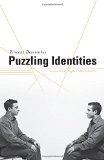February 17, 2016
(NOTE: As an Amazon Associate I earn from qualifying purchases.)
Comments (0)
- Uncategorized
February 7, 2016
(NOTE: As an Amazon Associate I earn from qualifying purchases.)

The Super Natural: A New Vision of the Unexplained by Whitley Streiber and Jeffrey J. Kripal (Tarcher, 2016)
,
(kindle ed.), (amazon.co.uk), (UK Kindle ed.)
Book description from the publisher:
Two of today’s maverick authors on anomalous experience present a perception-altering and intellectually thrilling analysis of why the paranormal is real, but radically different from what is conventionally
understood.
Whitley Strieber (Communion) and Jeffrey J. Kripal (J. Newton Rayzor professor of religion at Rice University) team up on this unprecedented and intellectually vibrant new framing of inexplicable events and experiences.
Rather than merely document the anomalous, these authors–one the man who popularized alien abduction and the other a renowned scholar and “renegade advocate for including the paranormal in religious studies” (The New York Times)–deliver a fast-paced and exhilarating study of why the supernatural is neither fantasy nor fiction but a vital and authentic aspect of life.
Their suggestion? That all kinds of “impossible” things, from extra-dimensional beings to bilocation to bumps in the night, are not impossible at all: rather, they are a part of our natural world. But this natural world is immeasurably more weird, more wonderful, and probably more populated than we have so far imagined with our current categories and cultures, which are what really make these things seem “impossible.”
The Super Natural considers that the natural world is actually a “super natural world”–and all we have to do to see this is to change the lenses through which we are looking at it and the languages through which we are presently limiting it. In short: The extraordinary exists if we know how to look at and think about it.
Google Books preview:
Comments (0)
- new books,reality
February 3, 2016
(NOTE: As an Amazon Associate I earn from qualifying purchases.)

A Survival Guide to the Misinformation Age: Scientific Habits of Mind by David J. Helfand (Columbia University Press, 2016)
(kindle ed.), (amazon.co.uk), (UK kindle ed.)
Book description from the publisher:
We live in the Information Age, with billions of bytes of data just two swipes away. Yet how much of this is mis- or even disinformation? A lot of it is, and your search engine can’t tell the difference. As a result, an avalanche of misinformation threatens to overwhelm the discourse we so desperately need to address complex social problems such as climate change, the food and water crises, biodiversity collapse, and emerging threats to public health. This book provides an inoculation against the misinformation epidemic by cultivating scientific habits of mind. Anyone can do it?indeed, everyone must do it if our species is to survive on this crowded and finite planet.
This survival guide supplies an essential set of apps for the prefrontal cortex while making science both accessible and entertaining. It will dissolve your fear of numbers, demystify graphs, and elucidate the key concepts of probability, all while celebrating the precise use of language and logic. David Helfand, one of our nation’s leading astronomers and science educators, has taught scientific habits of mind to generations in the classroom, where he continues to wage a provocative battle against sloppy thinking and the encroachment of misinformation.
Google Books preview:
Comments (0)
- culture,new books,psychology
February 2, 2016
(NOTE: As an Amazon Associate I earn from qualifying purchases.)
Comments (0)
- happiness
January 29, 2016
(NOTE: As an Amazon Associate I earn from qualifying purchases.)

Puzzling Identities (Institute for Human Sciences Vienna Lecture Series) by Vincent Descombes, tr. Stephen Adam Schwartz (Harvard University Press, 2016)
(kindle ed.), (amazon.co.uk), (UK kindle ed.)
Book description from the publisher:
As a logical concept, identity refers to one and the same thing. So why, Vincent Descombes asks, do we routinely use “identity” to describe the feelings associated with membership in a number of different communities, as when we speak of our ethnic identity and religious identity? And how can we ascribe the same “identity” to more than one individual in a group? In Puzzling Identities, one of the leading figures in French philosophy seeks to bridge the abyss between the logical meaning of identity and the psychological sense of “being oneself.”
Bringing together an analytic conception of identity derived from Gottlob Frege with a psychosocial understanding stemming from Erik Erikson, Descombes contrasts a rigorously philosophical notion of identity with ideas of collective identity that have become crucial in contemporary cultural and political discourse. He returns to an argument of ancient Greek philosophy about the impossibility of change for a material individual. Distinguishing between reflexive and expressive views of “being oneself,” he shows the connections between subjective identity and one’s life and achievements. We form profound attachments to the particular communities by which we define ourselves. At the same time, becoming oneself as a modern individual requires a process of disembedding oneself from one’s social milieu. This is how undergoing a crisis of identity while coming of age has become for us a normal stage in human life.
Puzzling Identities demonstrates why a person has more than one answer to the essential question “Who am I?”
Google Books preview:
Comments (0)
- new books,self





